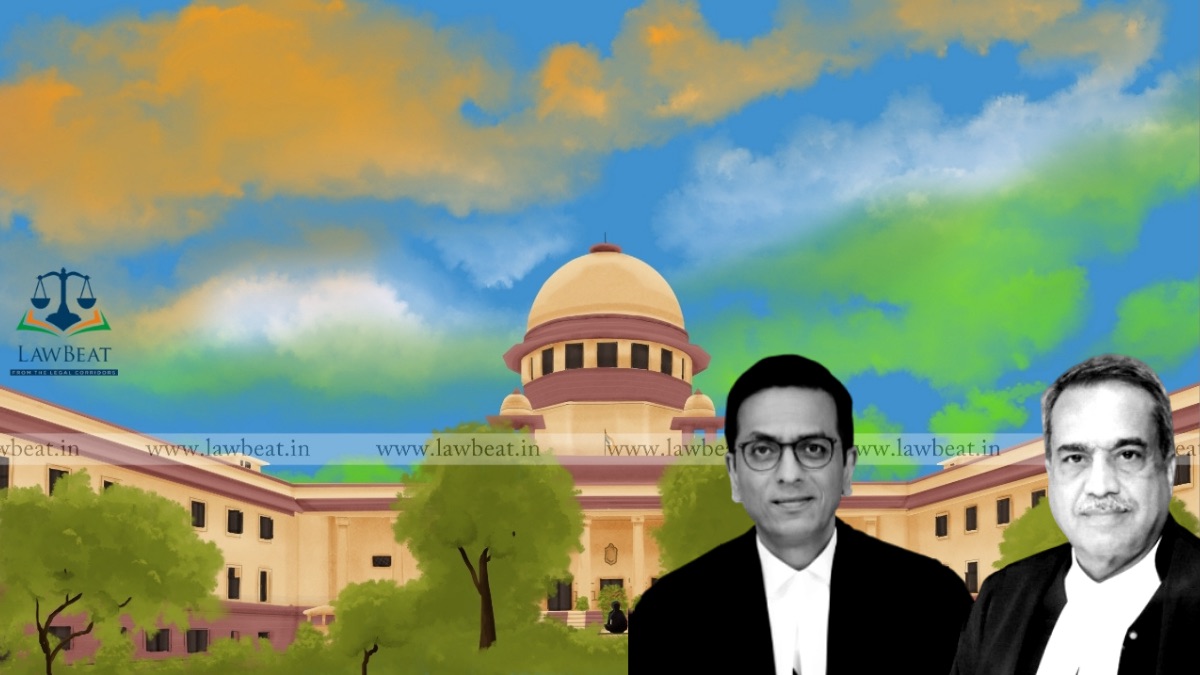“Parliament Can Enact Law On Same Subject If Presidential Assent Received On State Law”: Justice DY Chandrachud

Supreme Court Bench led by Justice DY Chandrachud & Justice MR Shah continued hearing the plea filed by Forum For Peoples Collective Efforts (FPCE), an umbrella homebuyers association challenging the constitutional validity of West Bengal Housing Industry Regulation Act, 2017 (“WB-HIRA”) which was notified on June 1,2018.
“Art 254 even if a state law has received presidential assent then the law would still be repugnant to the extent it deals with the Central Law. The Presidential Assent does not prevent the Parliament from legislating in the matter.”, Justice DY Chandrachud remarked.
Adv Devashish Bharuka appeared for the petitioner & Sr Adv Rakesh Divedi for the State of West Bengal & ASG Aishwarya Bhati for the Union of India.
Adv Devashsih Bharuka in his first submission informed the Bench that Central Government’s RERA was an exhaustive code & that there was no scope to enact a similar legislation in a state except in circumstances where Art 254(2) of the Constitution of India, 1950 applied. In the context, it was further contended in the petition that HIRA was neither reserved for consideration of the President & had nor obtained President’s consent.
“The objectives to have a complete comprehensive legislation with respect to real estate is concerned, the moment the builder acquires property for building, then he is regulated by RERA. It is a uniform legislation. The aim was one nation, one RERA.”, Bhaurka further contended.
In his next submission, Bharuka while giving a comparison of WB-HIRA & RERA, contended that the state had adopted the strategy of copy & paste approach. “95 to 98%, the WB HIRA is a complete copy paste. Pith & substance of WB HIRA is the same as RERA in terms of regulating the transaction & offering redressal to the consumer. Everything is identical. ”, Bharuka submitted to substantiate his contention.
Reference was made to Maharashtra also had a similar act Maharashtra Housing Regulation & Dvpt Act, 2012 but it was repealed by RERA u/s 92, Kerala Real Estate Regulation & Dvpt Act, 2015 was repealed by Kerala in 2017 & J & K Real Estate Regulation & Dvpt Act, 2018 which was repealed by Jammu & Kashmir Reorganisation Act, 2019.
In his third submission, petitioner’s Counsel referred to three phases which were relevant which was construction stage, actual industry stage & the stage of selling the product. Therefore he submitted that RERA formed a part of the third category.
FPCE in their plea prayed for passing an order declaring the West Bengal Housing Industry Regulation Act, 2017 as ultra vires the provisions of the Constitution of India and consequently, issue appropriate writ/order or direction in the nature of writ of mandamus/order directing the State of West Bengal to not enforce the provisions of the West Bengal Housing Industry Regulation Act, 2017 within the State of West Bengal.
“RERA was in force before the state of West Bengal enacted HIRA & that HIRA was in direct conflict with RERA. The conflict between the two statutes included differences such as sale of open car parking spaces as opposed to garages with walls and roofs, the compounding of offences which should be tried by courts & definition of events falling under force majeure. Both HIRA & RERA were enacted to ensure better accountability to consumers & to promote & regulate the real estate sector.”, the plea stated.
The Division Bench comprising Justice AK Sikri & Justice Abdul Nazeer February 11, 2019 issued notice to the standing counsel for the state & the Union of India.
Case Title: Forum For Peoples Collective Efforts (FPCE) And Anr. v. The State Of West Bengal And Anr.| W.P.(C) No. 116/2019
